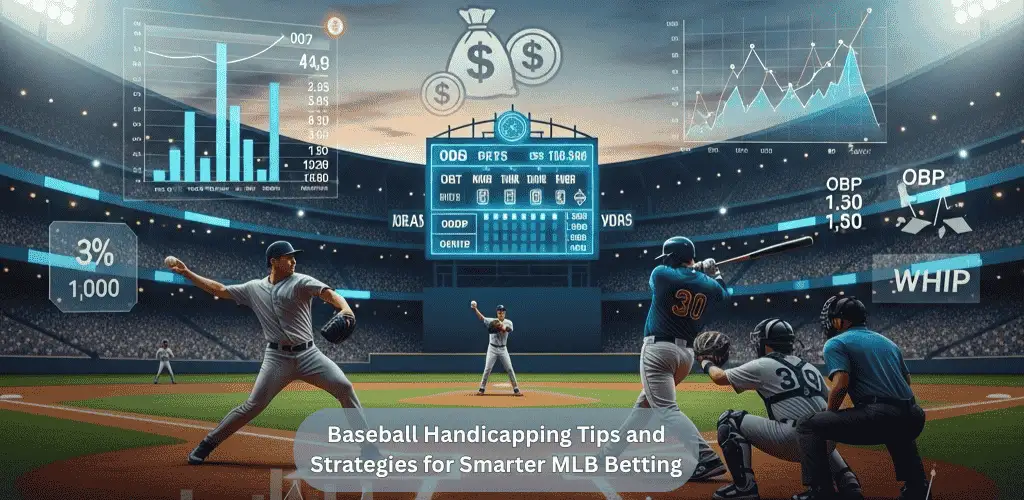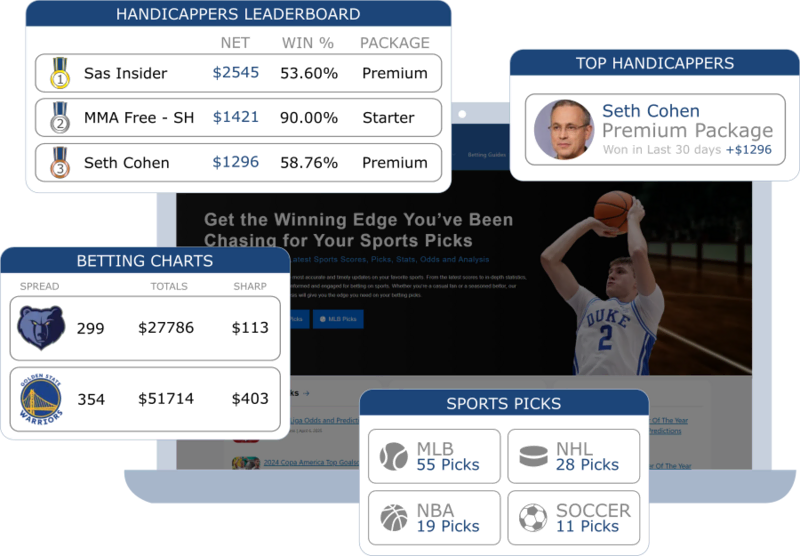Baseball is one of the most numbers-driven sports to bet on. Every pitch, swing, and defensive shift is tracked. There is data for everything, and that can be both an advantage and a distraction. The challenge is knowing which stats actually help you win.
Smart bettors understand how to filter information and spot value before the market adjusts. Baseball rewards patience, consistency, and attention to detail. Here are a few proven strategies to make your MLB handicapping sharper this season.
Table of Contents
Understand How Baseball Betting Works
Baseball betting is built around the moneyline, not a point spread. You are betting on who wins the game, not who covers. The run line acts like a spread at 1.5 runs, but most baseball bettors prefer the moneyline because games are often close.
Still, the run line can be profitable in the right situations. Teams with strong bullpens and power lineups are better at covering -1.5. Underdogs with elite pitching can make +1.5 valuable. The key is matching the bet type to the matchup, not forcing one approach across every game.
Avoid Heavy Favorites
Baseball favorites win more often, but they rarely pay over the long haul. Laying -180 or -200 night after night will drain your bankroll. Even the best teams lose 60 or more games every year.
The public loves to back big-name clubs, and that inflates the lines. Be selective. Look for smaller favorites with pitching advantages or value spots where the public is overreacting. Betting on reputation instead of reality is how bankrolls disappear.
Find Plus-Money Underdogs
This is where the real value lives. Plus-money underdogs do not win every night, but they make up for it with payouts that move your season total in the right direction.
Divisional underdogs are worth attention. Teams that play each other 19 times a year know every pattern, every bullpen arm, every batter’s weakness. That familiarity closes the gap between the favorite and the dog.
Focus on road underdogs when the total is high, usually 8.5 runs or more. More runs create more randomness, and underdogs thrive in unpredictable games. When you spot a sharp starter on the road against a tired lineup, you have a live dog with real value.
Stadium and Park Factors
Baseball’s version of home-field advantage is the stadium itself. Some parks boost offense, others kill it. Coors Field plays completely different than Petco Park.
Look at park factors, which measure how friendly a stadium is for scoring. If two power-hitting teams meet in a small park, the over might have value. If the fences are deep or the weather is heavy, unders become stronger.
Understanding how the park fits each team’s style helps you interpret the lines better than the public does.
Pitching Matchups
Pitching is the foundation of every baseball bet. Each game starts with a duel between two starters, and that matchup shapes everything from the moneyline to the total.
Two metrics matter most: ERA and WHIP. ERA shows run prevention, but always check how a pitcher performs against the specific opponent or in that ballpark. Splits matter more than season averages.
WHIP (walks plus hits per inning pitched) measures how often a pitcher allows baserunners. The lower the WHIP, the less trouble they create for themselves. High WHIP pitchers put constant pressure on their defense and bullpen.
Speaking of bullpens, always know which team has the fresher one. A bad bullpen ruins good starting efforts and can swing unders into overs late in games.
Run Scoring Ability
Every team scores differently. Some rely on power, others on contact and speed. Matchups matter. A team that crushes left-handed pitching might struggle against high-velocity right-handers.
Check how teams produce runs and whether that aligns with their opponent’s pitching profile. You can also use this to find value on totals. When two fast-paced teams face off in a hitter-friendly park, the over might be underpriced.
Weather Conditions
Weather affects baseball more than any other major sport. Wind, humidity, and temperature all change how the ball travels.
When the wind blows out, balls carry farther and overs become stronger. When it blows in, home runs turn into warning-track outs. Even a small change in wind speed can move a total by half a run or more.
Temperature matters too. Cold, damp air keeps the ball inside the park, while warm, dry weather favors hitters. Always check game-day conditions before betting.
Umpires Matter Too
Umpires influence totals more than most people realize. Some call a wide strike zone that favors pitchers. Others squeeze the corners and turn close calls into walks.
You can find data on each umpire’s average runs per game, strikeout rate, and walk rate. A few minutes of research can reveal if a game might trend toward more or fewer runs based on who’s behind the plate.
How to Think Like a Baseball Handicapper
Baseball betting rewards discipline, not emotion. There are games every day, but not every one is worth your money. Focus on matchups, not favorites. Study trends that actually move outcomes, not streaks that grab attention.
You do not need to win every bet to profit. You need to find value consistently. When you combine smart stats with good timing, baseball becomes one of the most beatable sports on the board.




